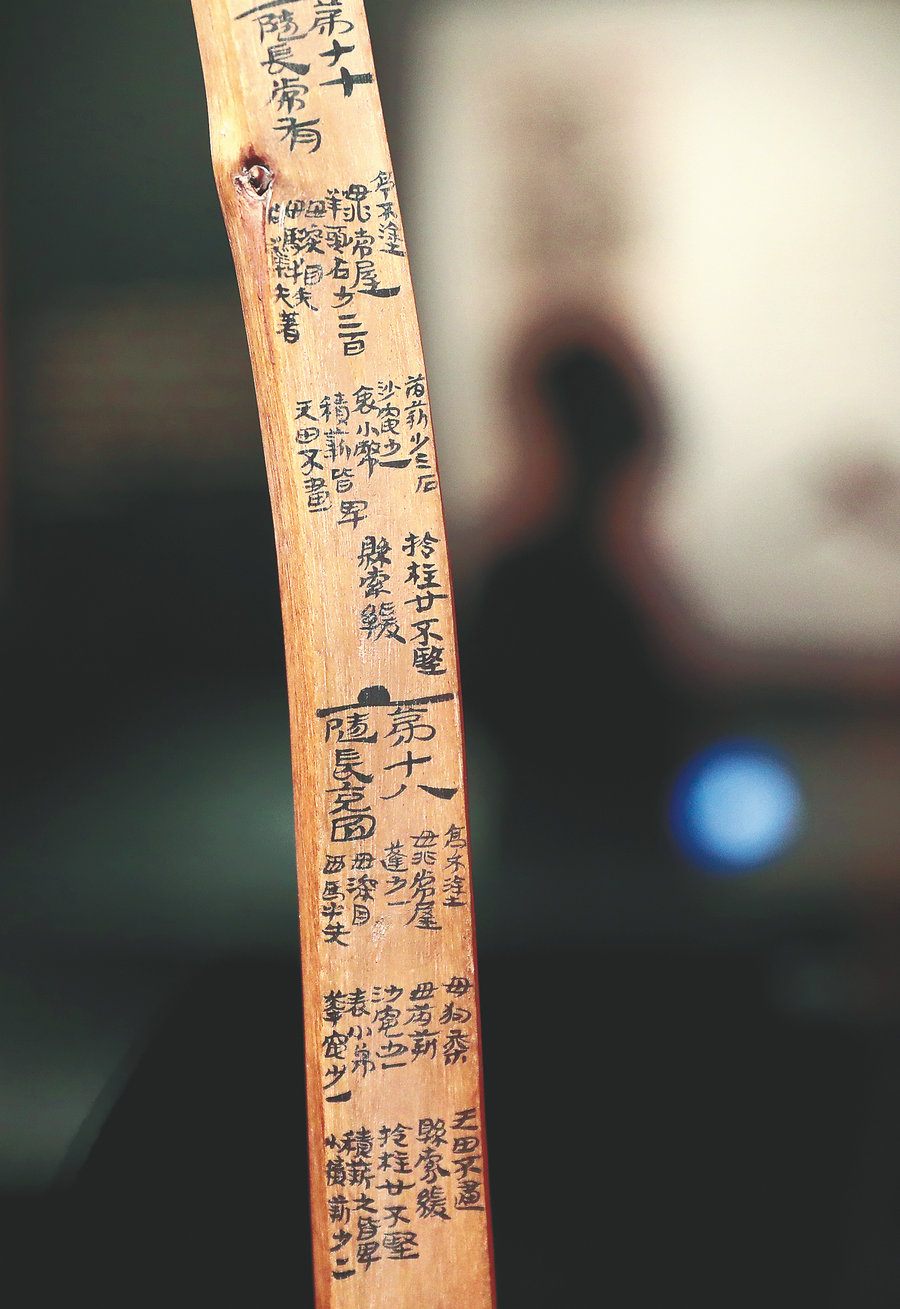Slipping into history


In 121 BC, Liu Che, or Emperor Wu of the Han Dynasty, set up four prefectures — Wuwei, Zhangye, Jiuquan and Dunhuang — on the far western reaches of the Yellow River, opening the Hexi Corridor, the main artery of the ancient Silk Road, in what is now Gansu.
In 102 BC, he established Juyan Duwei Office, a military institute in Zhangye prefecture, to guard against the incursions of nomadic Xiongnu raiders from the north. The soldiers who staffed it were the primary authors of the trove of slips, which record their military and administrative activities and personal stories.
The Juyan slips vividly portray the lives of border defense guards at the time, according to Xiao Congli, director of the organization and research department of the Gansu Jiandu Museum. Jiandu is the Chinese name for bamboo and wooden slips, the main media for writing documents before paper was widely introduced.
"They lived a bittersweet life in Juyan. On the one hand, they had a heavy workload, having to stand sentry, construct military fortresses and do farm work and a lot of chores. The environment in Northwest China was also harsh and many of them got sick not long after arrival.
"On the other hand, the government provided support for them," says Xiao. "They could receive food and clothes, and medical support when needed. They could bring family members with them, and the family members could also receive food, plant crops on farmlands distributed by the government or find other jobs in the local area.
"Some families settled down there, and their offspring later worked as border guards as well."
























